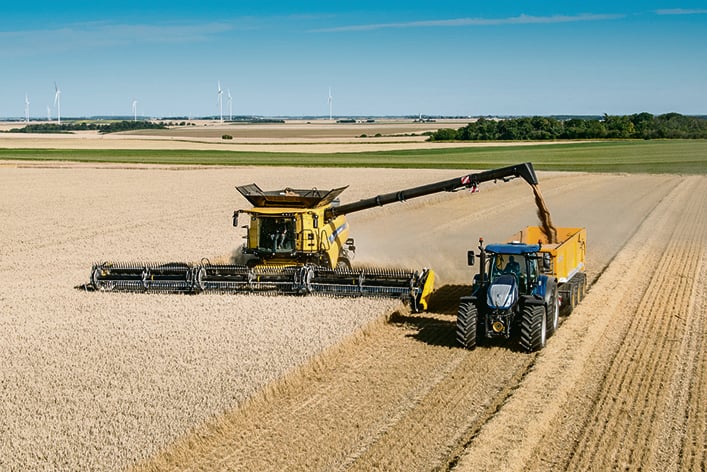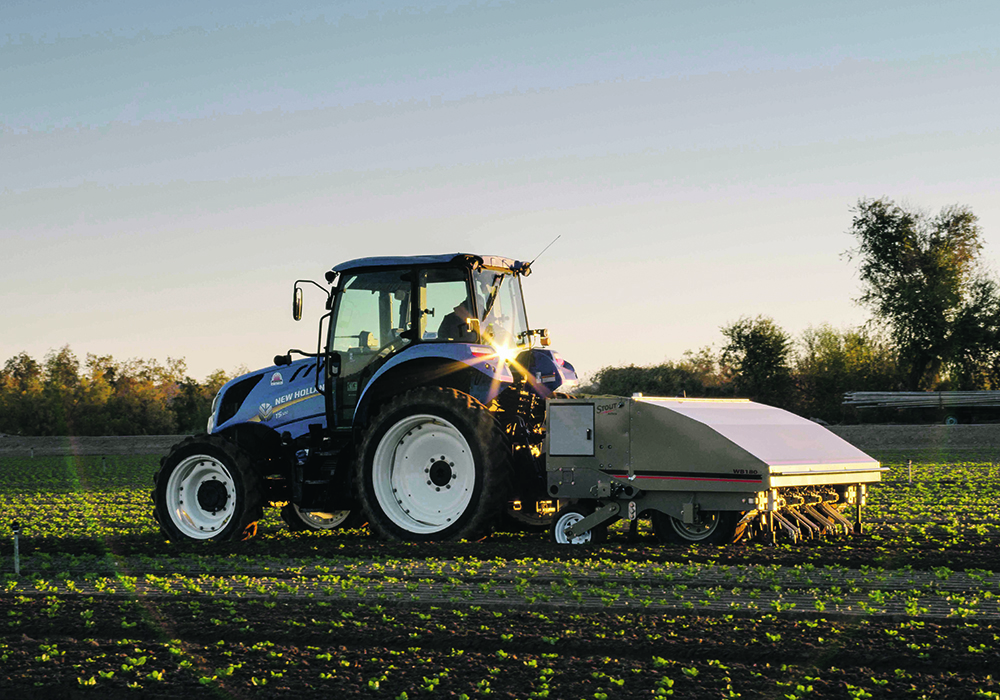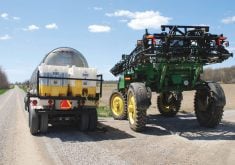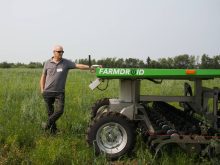Company describes its recent Tech Day as a ‘little bit of a coming out at the ball’ as it introduced new technology
At a recent CNH tech day in Phoenix, Arizona, the company presented itself as technologically adaptable and nimble.
“Tech Day was a little bit of a coming out at the ball of just how our team is operating at speed,” said Parag Garg, chief digital product officer at CNH Industrial.
“We went from a concept of an (electric) tractor to a working product that customers were driving at Tech Day in under a year, and that’s because of changing the culture and becoming technology first.”
CNH Industrial is the parent company of Case IH and New Holland.
At the event, CHN revealed the New Holland T4 electric power tractor prototype, a 120 horsepower light utility tractor with autonomous features.
It also revealed its Driverless Tillage Solution that uses the Raven autonomy tech stack to enable CNH tractors to carry out tillage operations with or without an operator in the cab.
The company’s Driver Assist Harvest Solution also uses the Raven tech stack to help operators co-ordinate the path and speed of the tractor pulling the grain cart when taking on a load from the combine while moving.
Garg said the appointment of Scott Harris as the Case IH global president slightly more than a year ago marked an important point in the company’s culture change.
Since then, it has reorganized with the appointment of Garg and Marc Kermisch, chief digital and information officer at Case IH, who have been on a hiring spree and redefining expectations for the company’s existing employees.
“We’ve been doing these great partnerships with startups, and it does start changing the (company’s) DNA. It starts changing the way that our team thinks about the cycle. We don’t think about it as an ag cycle where it’s a one-year cycle. We start thinking about it as a start-up cycle where it’s a two-week sprint.”
Mainline equipment manufacturers are under pressure from startups that have designed and fielded impressive agricultural technologies based on robotics, artificial intelligence, and electrification.
Startups can quickly pivot during research and development cycles, and there are fewer concerns of damaging the reputation of an established brand by selling equipment that needs more development.
Marc Kermisch, chief digital and information officer at CNH Industrial, said partnerships and acquisitions CNH has made with startups has helped it become more relevant and aggressive.
“It allows us to keep a pulse on how technologies are evolving and allows us to connect that over to our customers to ensure it’s really solving a customer problem,” Kermisch said.
“It also positions us as an employer of choice for technologists that are looking to join and solve really important missions.”
He said a good example of how a relationship with start-up companies can benefit CNH is the launch of the T4E electric tractor, which wouldn’t have happened so quickly without the relationship with Monarch Tractor.
Monarch Tractor builds smaller autonomous and electric tractors, and slightly more than a year ago it entered into a multi-year licensing with CNH, to help it develop a low-horsepower electric platform.
“Monarch has an electric architecture and a smart route capability for light autonomy that we were able to essentially retrofit into our first-generation electric tractor servicing the light utility space.
“We’ll bring it to market in just under two years, which is an extremely fast product development life cycle for us. They’re not only teaching us aspects of technology that we didn’t have deep expertise on, but they are also teaching us to go-to-market strategy.
“We’ve built a team of over 50 electrification engineers, and we’ve been working hand-in-hand across our precision technology group as we look at how Monarch technology can enable that particular use case for the farmer,” Kermisch said.
He said in many instances start-up companies need relationships with OEMs to help get their products in the hands of more farmers.
This was the case with the acquisition of Raven, which began to integrate its technology in Patriot and Titan after the acquisition.
Last year, CNH Industrial acquired a minority stake in Augmenta, which built a system that uses computer vision and artificial intelligence to monitor and treat crops in real time.
Garg said Augmenta’s camera is installed on a tractor or sprayer cab, and it can be used for fertilizer applications, and for green on brown treatment of weeds.

“We quickly integrated them with Raven and our Patriots sprayers. So, we’ve actually got units running around — Case IH sprayers with the Ravens RCM Hawkeye system along with this augmented solution, and customer feedback on early tests is really strong about the product offering,” Garg said.
During the tech day, CNH also announced it acquired a 10 percent minority stake in Stout Industrial Technology, an American company that builds a smart cultivator implement that uses cameras, AI, and proprietary vision technology to distinguish weeds from high-value crops.
Stout machines are expected to be distributed through the New Holland brand’s dealer network and Kermisch said the new relationships with Stout will help CNH accelerate the development of further cultivation platforms.
For startups looking to scale up, the dealer network of the OEM is extremely attractive for sales and product support.
“The first question the farmer asks are where do I get my spare parts? Who trains me? When are you going to service this? Can you be here within an hour?
“They (farmers) may not have the patience or time to work with a startup.”
However, he said start-up companies have brought a lot of energy and talent into the ag industry and farmers will benefit because competition breeds better outcomes.
“I love the competition. I love the creativity and I think it certainly has helped us accelerate our technology journey. And ultimately, I think it makes it a better ecosystem for the farmer as a whole,” Kermisch said.
















